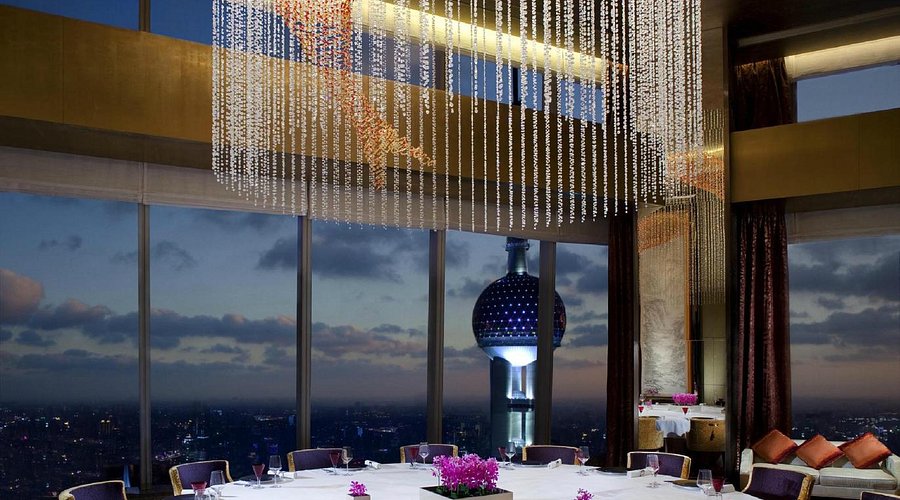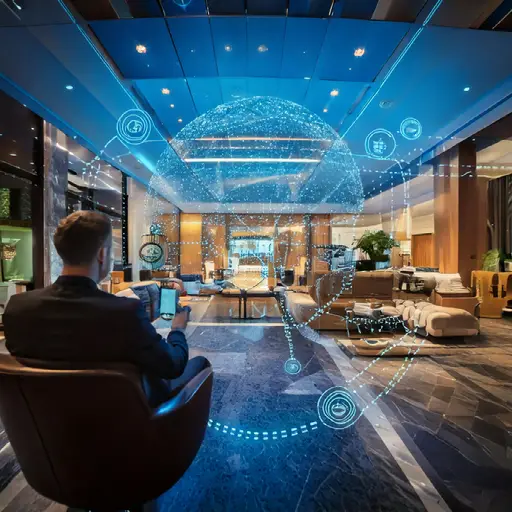In today’s luxury travel landscape, travelers want more than just a beautiful property and consistent service. They’re looking for experiences that feel uniquely tailored to them – a seamless blend of the comfort of a trusted brand and the discovery of local culture. This shift is redefining how luxury hotel brands like EDITION, W, NoMad, and The Ritz-Carlton deliver value.
Empowering Personalization Through Experiences
Personalization extends beyond amenities and services – it’s woven into the entire guest journey. Every detail, from room design to dining, can be an opportunity to make guests feel valued and understood.
EDITION Hotels, for instance, often collaborate with local artists and brands to create signature experiences. At The Tokyo EDITION,, a “Sustainable and Timeless Christmas Tree,” designed by Kengo Kuma and crafted by Karimoku, will be transformed into elegant tables, preserving the legacy of the original tree. Punch Room, EDITION’s global cocktail bar concept, blends 19th-century London club traditions with Japanese culture. As Japan’s first authentic punch bar, it offers innovative drinks made with sustainable, local ingredients in an intimate, sophisticated setting.

The Ritz-Carlton Bali’s partnership with Missoni for a Resort Club collection illustrates how collaborations can elevate the guest experience while staying true to the brand’s identity. These partnerships allow properties to feel both globally consistent and locally relevant, creating meaningful connections with guests.

Anticipating Guest Needs
With the global luxury market forecast to hit $1.6 trillion in 2024, the hospitality industry faces increasing pressure to align with changing expectations. Guests today seek more than physical luxury; they want to feel understood. Younger travelers are drawn to experiences like yoga retreats, spa treatments, and innovative sleep technologies, while older generations favor familiar comforts delivered with precision.
The secret to meeting these expectations lies in understanding individual preferences and anticipating needs. Chinese tourists, for example, are shifting their focus from shopping to immersive cultural and experiential activities. Hotels that adapt to these trends can deliver tailored journeys that leave a lasting impression.
Moving Beyond Localization
While localization remains important, personalization takes it further by creating a sense of connection. At The Ritz-Carlton Shanghai Pudong, this philosophy is evident. Guests can enjoy Michelin-starred Chinese cuisine at Jin Xuan or indulge in authentic Italian dishes at Scena di Angelo, on 52nd floor, providing both a taste of Shanghai’s vibrant culture, mediterranean flavors, and view of the Bund. These thoughtful options cater to a spectrum of guests, from first-time international visitors to seasoned business travelers.

Personalization as a Growth Strategy
Luxury hospitality is no longer just about offering opulence – it’s about creating a deep emotional connection. Personalization enables brands to transform generic stays into unforgettable journeys. Whether through tailored wellness options, culturally immersive dining experiences, or thoughtful gestures, every interaction can reinforce the brand’s value in the guest’s mind.
By focusing on personalization, luxury hotel brands can build stronger relationships, inspire repeat visits, and turn guests into advocates. The future of luxury travel lies in meeting the traveler where they are – not just physically, but emotionally. It’s about crafting experiences that feel truly individual, leaving guests with the sense that their journey was designed just for them.



